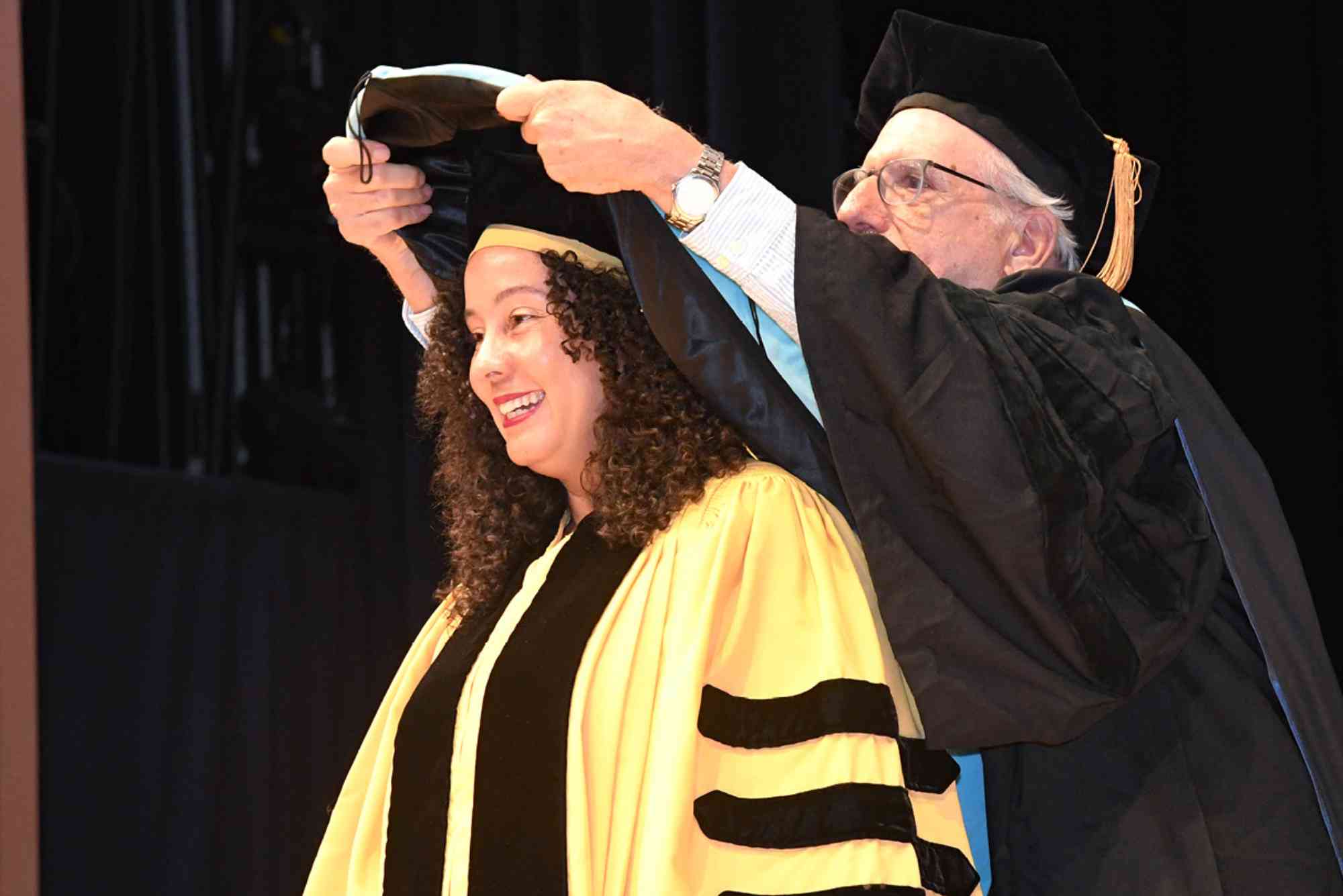Careers with a Doctorate in Education: What’s Possible?
Earning a doctorate in education is a significant academic milestone that opens doors to a wide range of career opportunities. Whether you hold a Doctor of Education (Ed.D) or a Doctor of Philosophy (Ph.D) in Education, the degree can lead you to leadership roles in schools, universities, government agencies, and even private sectors. With the education sector constantly evolving, the demand for highly qualified professionals who can drive change, influence policy, and lead academic institutions is on the rise. This article explores what’s possible with a doctorate in education, offering insights into career paths, potential salaries, and the impact you can make in the field.
What is a Doctorate in Education?
A doctorate in education represents the highest level of academic achievement in the field of education. There are typically two main types of doctoral degrees in this field: the Ed.D (Doctor of Education) and the Ph.D (Doctor of Philosophy in Education). While both degrees are advanced, they often serve different career goals. An Ed.D focuses more on practical application and leadership within educational organizations, whereas a Ph.D is research-oriented and prepares graduates for academic and scholarly pursuits.
Both degrees emphasize critical thinking, advanced research skills, and deep expertise in educational theories and practices. Regardless of which path you choose, careers with a doctorate in education span across various industries, each offering unique opportunities for growth and impact.
Why Pursue Careers with a Doctorate in Education?
Holding a doctorate in education enhances your credibility, positions you as a leader in the field, and opens doors to higher-level roles that are often out of reach for those with only a master’s degree. These careers are not only financially rewarding but also allow you to influence educational systems and contribute to policy-making at local, national, and global levels.
Furthermore, a doctorate equips you with specialized skills such as advanced research methodologies, data analysis, organizational leadership, and strategic decision-making. These competencies are highly valued in both academic institutions and corporate environments that prioritize training and development.
Career Paths with a Doctorate in Education
Educational Leadership and Administration
One of the most common career paths for doctorate holders is leadership within educational institutions. Positions such as school superintendent, principal, or director of curriculum development fall under this category. These roles involve overseeing school operations, implementing educational policies, and ensuring academic excellence across the institution. Educational leaders are responsible for fostering a positive learning environment, managing staff, and driving organizational change.
Higher Education Faculty Positions
Many individuals pursue a doctorate in education with the goal of becoming university professors or academic researchers. As a faculty member, you will engage in teaching, curriculum development, scholarly research, and publishing in academic journals. A Ph.D is typically preferred for these roles, especially if you aim to secure tenure-track positions at research-intensive universities.
Additionally, doctoral graduates often take up administrative roles in higher education, such as Dean of Students, Academic Affairs Director, or Provost. These positions require a deep understanding of academic policies, faculty management, and student development initiatives.
Educational Policy and Advocacy
Careers with a doctorate in education are not limited to academia. Many graduates become influential policymakers, working with government agencies, think tanks, and non-profit organizations to shape educational reforms. These roles involve conducting research on educational issues, analyzing data to inform policy decisions, and advocating for systemic changes that improve educational outcomes.
Educational policy analysts and advocates often collaborate with stakeholders at various levels, from local school boards to federal education departments, ensuring that educational strategies align with societal needs and equity goals.
Corporate Training and Development
The corporate world increasingly values professionals who can design and implement effective learning and development programs. Doctorate holders in education are often hired as Chief Learning Officers (CLOs), corporate trainers, or organizational development consultants. These roles involve creating employee training programs, developing leadership development initiatives, and enhancing overall organizational performance through education-driven strategies.
With the rise of e-learning platforms and remote work environments, there is a growing demand for experts who can integrate educational technology into corporate training programs. Your expertise in instructional design and adult learning theories makes you a valuable asset in this sector.
Educational Consulting
Another lucrative career path is educational consulting. Consultants work independently or with firms to advise schools, universities, and educational organizations on improving instructional methods, curriculum design, and administrative efficiency. They may also provide guidance on accreditation processes, teacher training programs, and educational technology integration.
Educational consultants often enjoy flexible work schedules and the opportunity to work on diverse projects. Their role is crucial in helping institutions navigate complex educational challenges and adopt innovative solutions.
Research and Program Evaluation
For those passionate about research, program evaluation is a promising career option. Research specialists and evaluators assess the effectiveness of educational programs, develop assessment tools, and provide data-driven recommendations to improve educational practices. These roles are prevalent in academic research centers, non-profit organizations, and international agencies focused on educational development.
Program evaluators play a vital role in ensuring that educational initiatives are achieving their intended outcomes. Their work informs decision-making at the highest levels, influencing how resources are allocated and which programs receive continued support.
Salary Potential with a Doctorate in Education
While salaries vary depending on the career path, location, and years of experience, holding a doctorate in education generally leads to higher earning potential. According to industry reports, educational administrators with a doctorate can earn between $90,000 to $150,000 annually, with superintendents and deans often earning at the higher end of this range.
University professors with a Ph.D typically earn between $80,000 to $120,000 per year, depending on tenure status and institution type. In the corporate sector, Chief Learning Officers and senior training consultants may earn upwards of $140,000, especially in large organizations.
Skills You’ll Need for Success
To excel in careers with a doctorate in education, certain skills are essential. Leadership and management abilities are crucial for administrative roles, while research and analytical skills are indispensable for academic and policy-oriented positions. Effective communication, both written and verbal, is key to disseminating research findings, advocating for policy changes, or leading teams.
Additionally, technological proficiency is increasingly important, particularly for those involved in e-learning development, educational technology consulting, or corporate training design. Staying updated with the latest educational trends and being adaptable to change are also vital for long-term success.
The Impact of Doctorate Holders in Education
Professionals with a doctorate in education play a transformative role in shaping educational landscapes. Whether through pioneering research, leading educational institutions, or driving policy reforms, their work has a profound impact on teaching methodologies, student outcomes, and overall educational quality.
These individuals often act as thought leaders, contributing to scholarly debates and setting new standards in education. Their expertise helps bridge gaps between theory and practice, ensuring that educational strategies are both innovative and practical.
Is a Doctorate in Education Worth It?
Pursuing a doctorate in education is a significant investment of time and resources, but for those passionate about leading change in education, the rewards are substantial. Careers with a doctorate in education are diverse, fulfilling, and offer numerous opportunities to influence the future of learning. Whether you aspire to become a university professor, a school superintendent, a policy advisor, or a corporate learning executive, a doctorate equips you with the expertise and credibility to excel.
If you’re ready to take your educational career to the next level, consider enrolling in a reputable doctoral program that aligns with your professional goals. The journey is challenging, but the possibilities are endless.
FAQs
What jobs can I get with a doctorate in education?
With a doctorate in education, you can pursue careers such as university professor, school superintendent, educational policy advisor, corporate training director, and educational consultant. The degree opens doors to leadership roles in both academic and corporate sectors.
Is an Ed.D better than a Ph.D in Education?
An Ed.D is generally more practice-oriented and suited for leadership and administrative roles in educational institutions, while a Ph.D is research-focused and ideal for academic and scholarly careers. The better choice depends on your career goals.
How long does it take to earn a doctorate in education?
Most doctorate programs in education take 3 to 5 years to complete, depending on whether you study full-time or part-time. The duration can also vary based on dissertation requirements.
Do you need a doctorate to work in higher education administration?
While it is not always mandatory, a doctorate in education is often preferred for senior roles in higher education administration, such as Dean, Provost, or Vice President of Academic Affairs.




